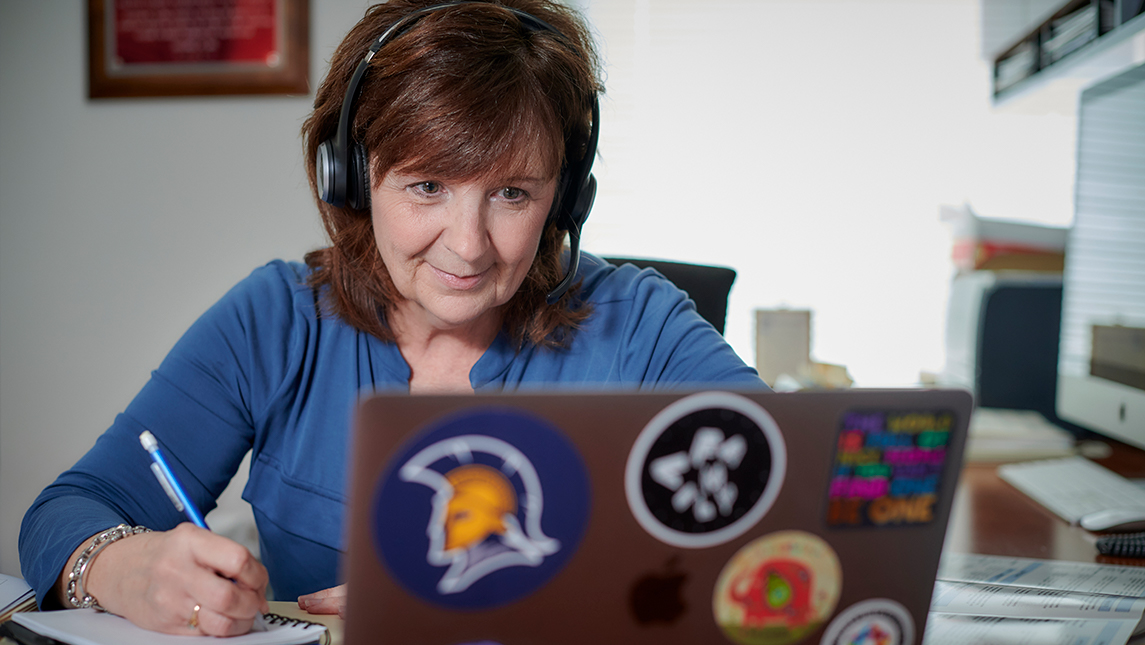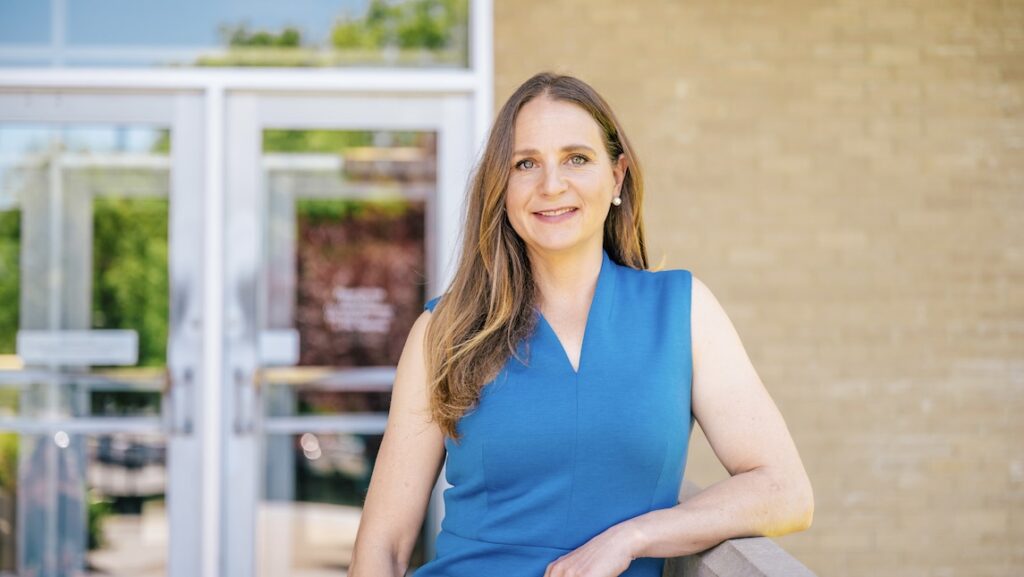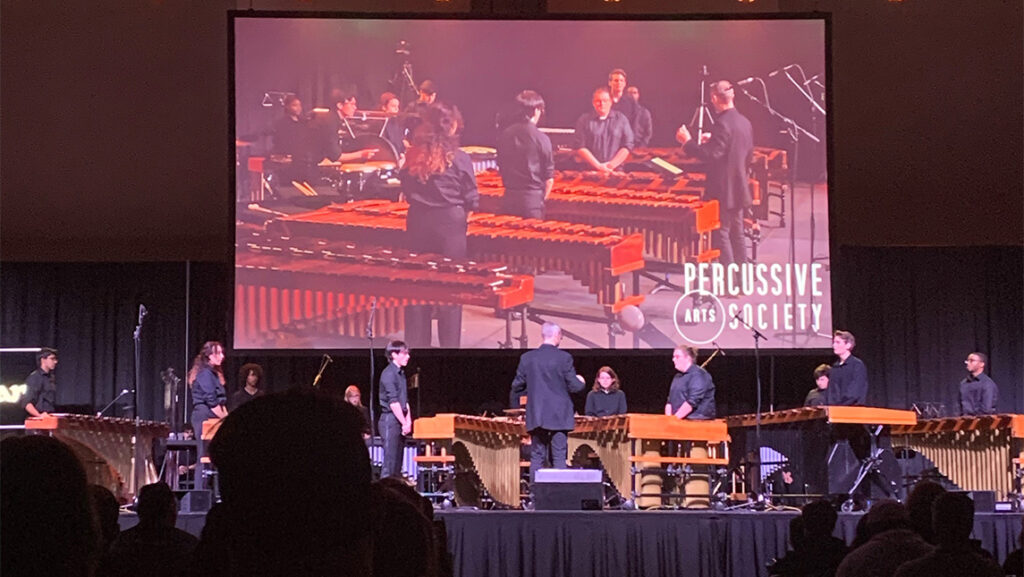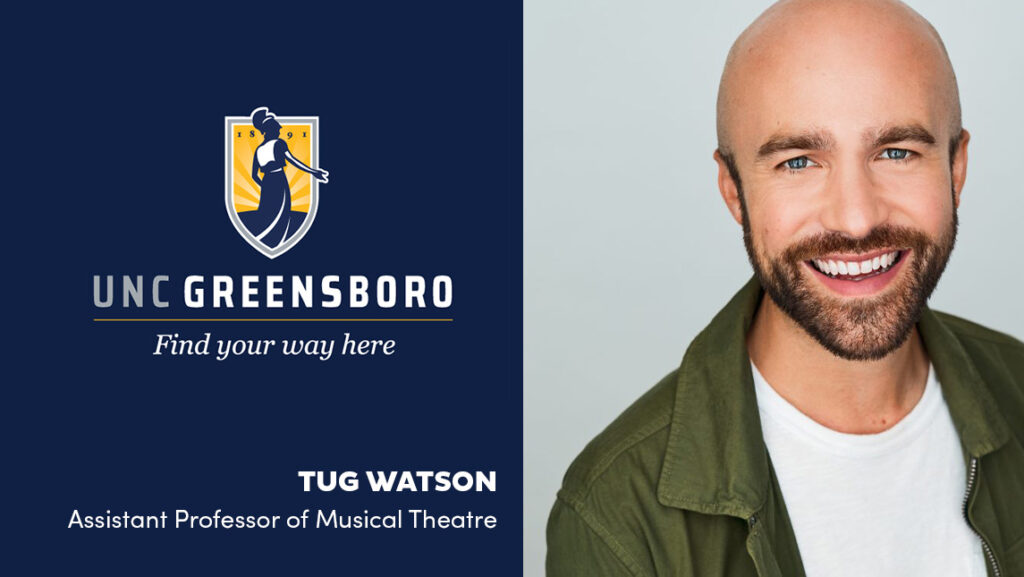
You may be familiar with the inner ear speaker that newscasters use to receive cues from the producer. You may also know about the speakers inside NFL quarterbacks’ helmets that allow players to receive feedback from coaches. What if teachers could get this kind of instant feedback while in the classroom?
Dr. Marcia Rock, associate professor in the Dept. of Specialized Education Services (SES) in the School of Education, is the preeminent scholar researching online Bug-in-Ear (BIE) coaching for educators.
Drawing on the research on the relationship between immediate feedback and effective instruction, online BIE coaching provides pre- and in-service teachers with real-time support in enhancing instruction and positive behavioral support strategies during the act of teaching.
During online BIE coaching, a teacher wears an earpiece, while an off-site instructional coach watches and listens to the lesson through video streaming. The coach delivers specific, descriptive commentary and encouragement, to the teacher, who can then immediately implement the recommendations. After the lesson, the coach and teacher meet online, and the teacher is provided with a summary of the effective practices that were observed, along with feedback on one or two targeted areas for continued growth.
In order to ensure privacy and confidentiality, Rock and her colleagues go through the Institutional Review Board process and defer to school districts’ permissions for audio and video recording that have been secured for each student.
What makes this method more effective than traditional coaching methods? According to Rock, it’s the real-time support.
“It really builds the teacher’s capabilities and professionalism because they are being viewed as the teacher, rather than having a coach physically present, which can be obtrusive and distracting,” says Rock.
Online BIE coaching also allows coaches to provide more support to more teachers. The technology, which was once viewed as futuristic, has become ubiquitous in our schools and lives.
“Now, what coaches want is to learn what to say, and how to say it. They want to be sure they are coaching and supporting pre- and in-service teachers in the most effective ways,” says Rock.
Rock has used this coaching method with teachers at various levels of their careers, including preservice teachers and those who have been teaching for more than 20 years. Experienced educators take to this coaching method well. Many have said the method has made them more reflective with their teaching; instead of just being given feedback after the lesson, teachers are able to take the feedback and apply it immediately to see the impact it has on students.
Not only is it effective for teachers, but it is also powerful for the students in the classroom. Rock recalls an interaction between a teacher and a student with a history of chronic school failure who was on the verge of dropping out.
“He noticed the coach speaking in the teacher’s ear and asked, ‘Is that your professor?’ The teacher replied ‘yes,’ and he said, ‘Wow, I might go to school and go to college,’” recalls Rock. “Just the thought of him entertaining the idea of going to school – a thought he would’ve previously rejected – is life-changing.”
For eight years, Rock has been working with the North Carolina Department of Public Instruction’s Exceptional Children Division using a North Carolina State Improvement Project grant to increase the use of this method across the state, and to improve instruction for students with disabilities. This research is also being funded by a third Teacher Quality Partnership grant from the U.S. Department of Education to implement this along with other coaching methods with two rural districts in partnership with an inner residency program for individuals who want to earn master’s degrees in teaching special or general education.
Previously, Rock directed Project LINK-2-LEAD, a $1.25 million leadership preparation grant from the U.S. Department of Education’s Office of Special Education and Rehabilitative Services, where Rock worked with doctoral scholars and the state to advance e-coaching.
What motivates Rock’s research?
“The coach’s voice becomes the teacher’s voice over time. And then they want to become coaches. It has a positive viral impact.”
Story by Alexandra McQueen, University Communications
Photography by Martin W. Kane, University Communications


